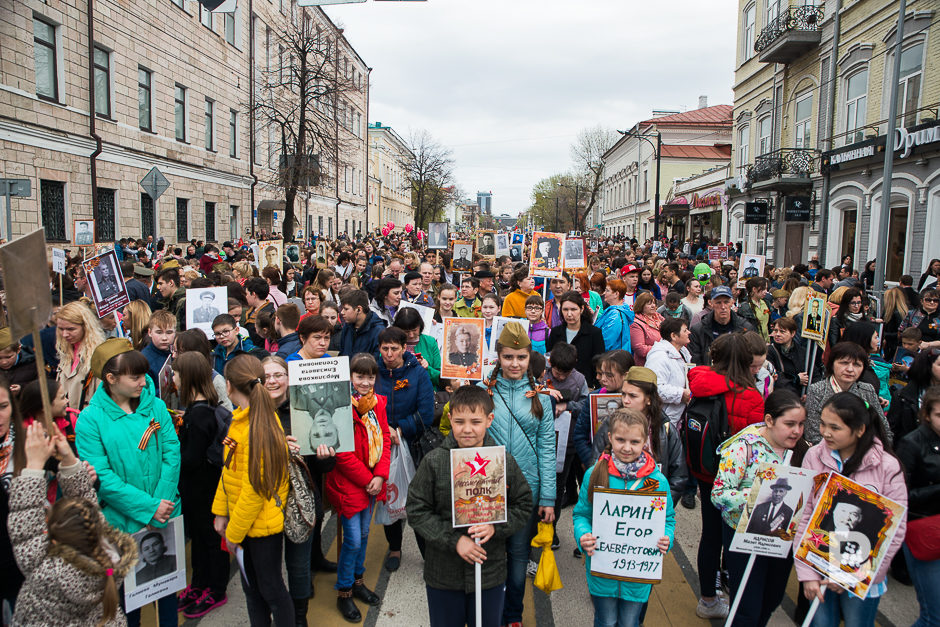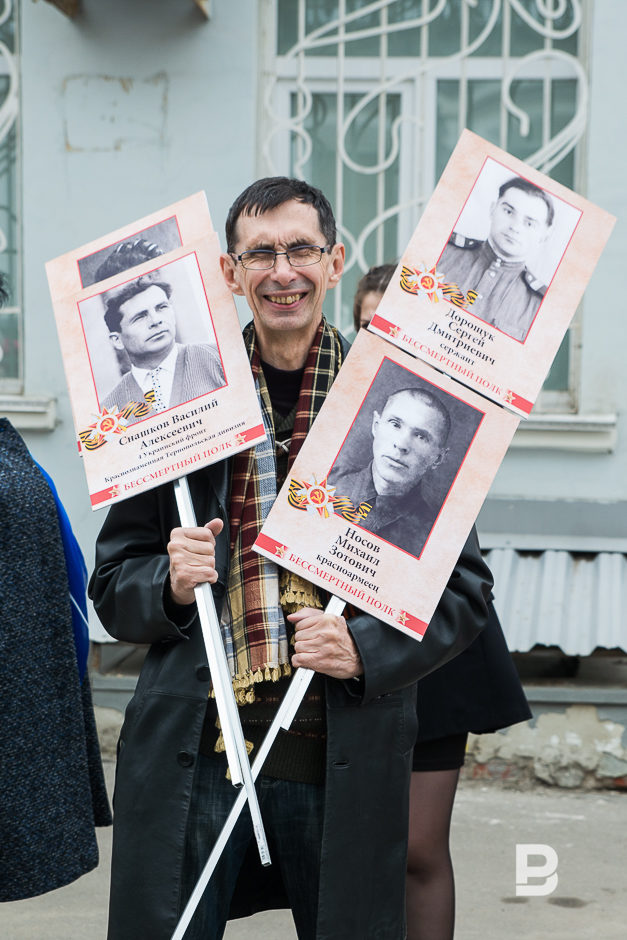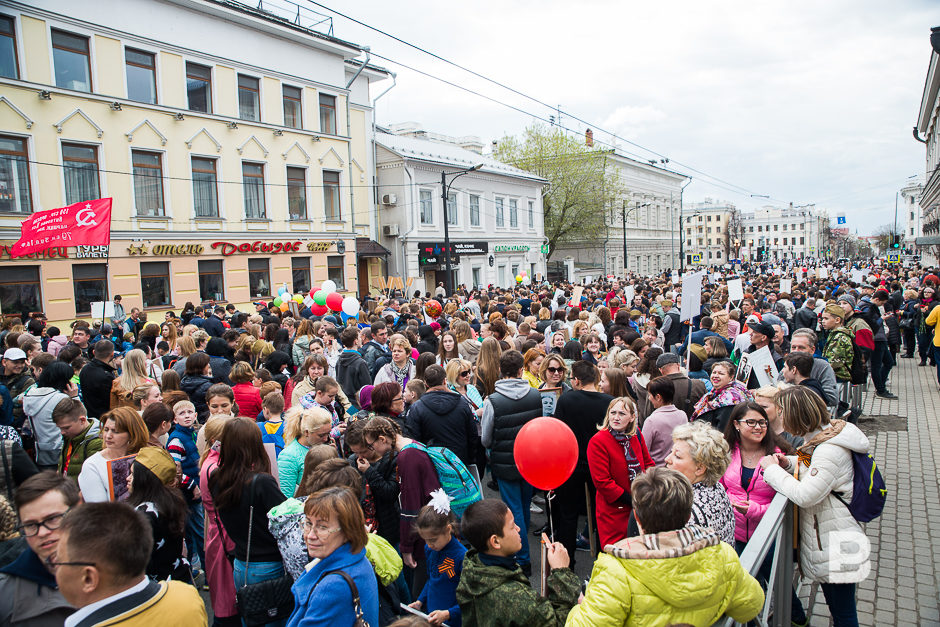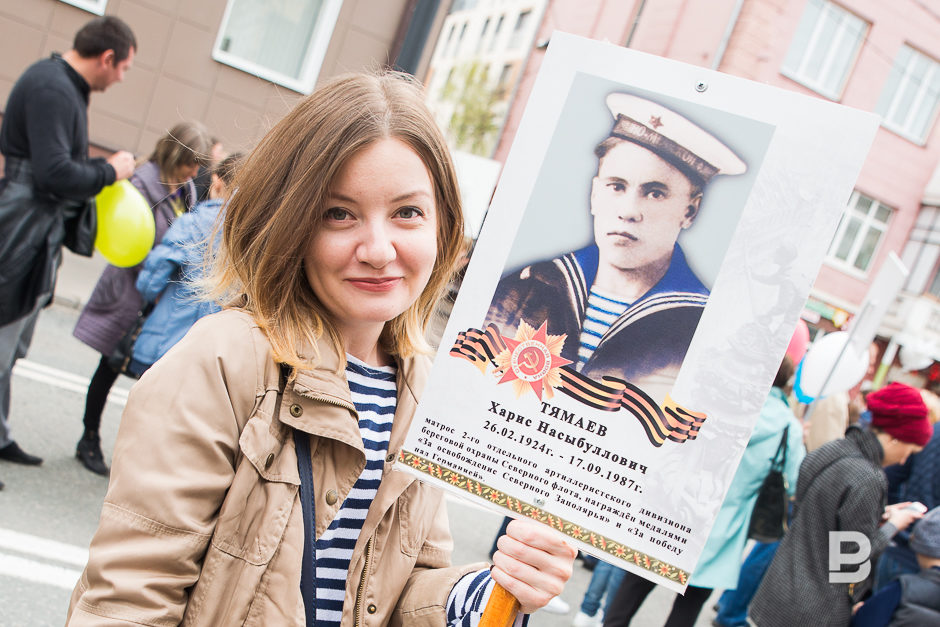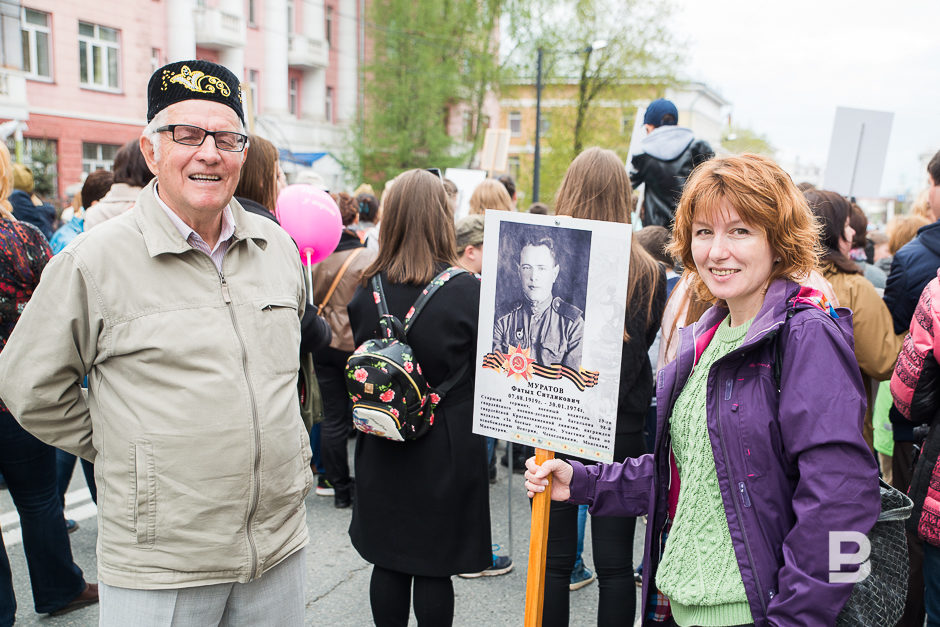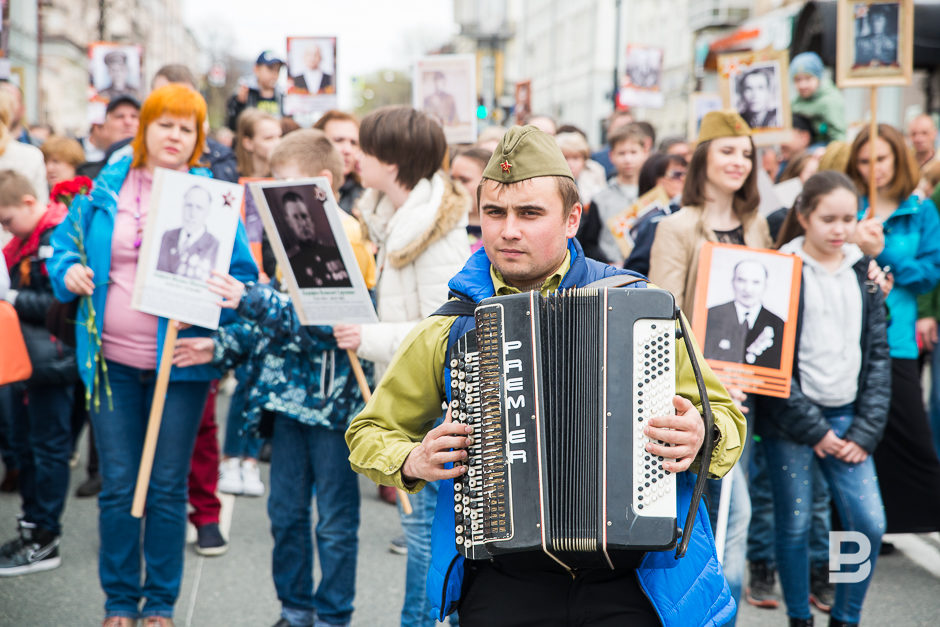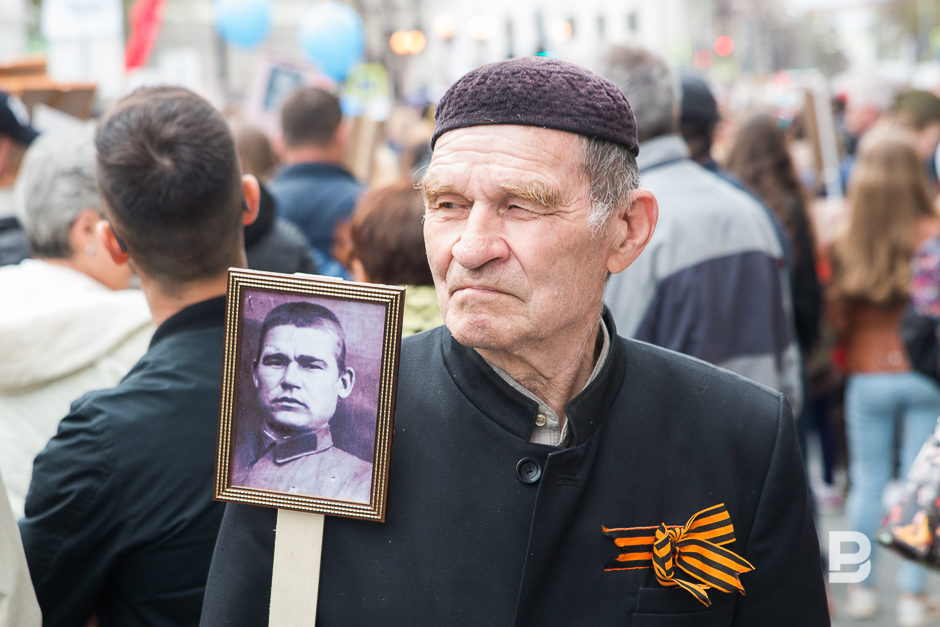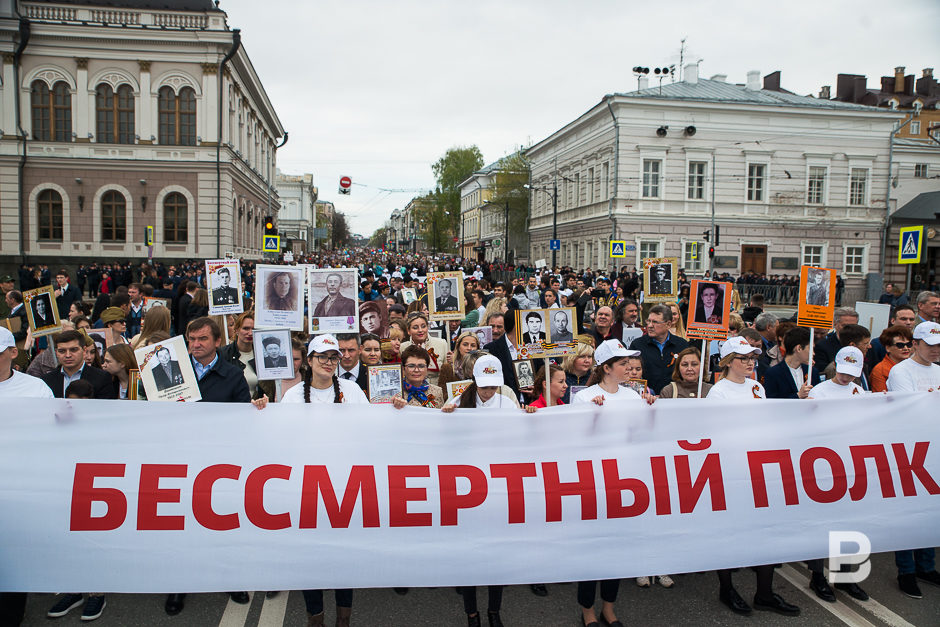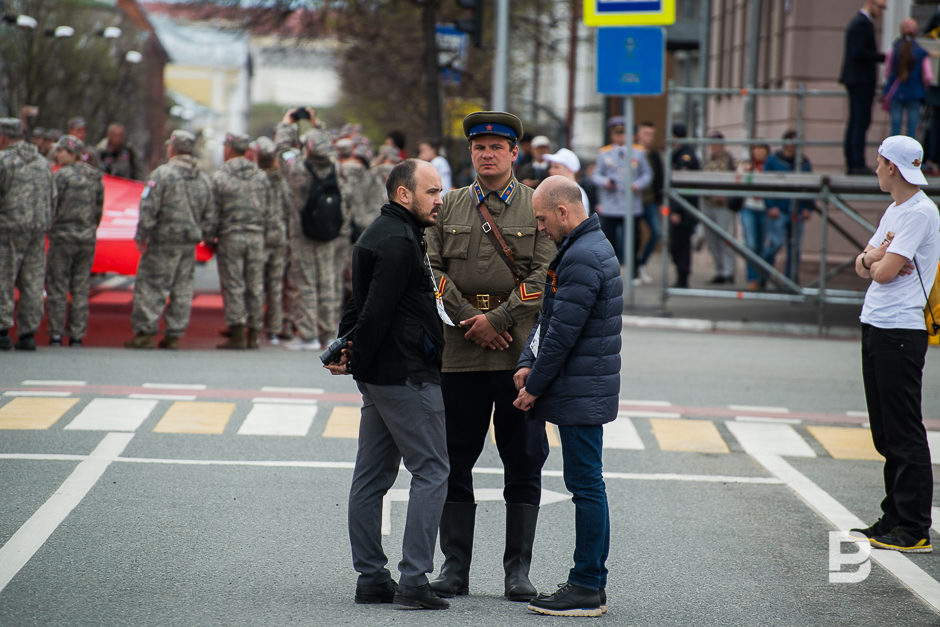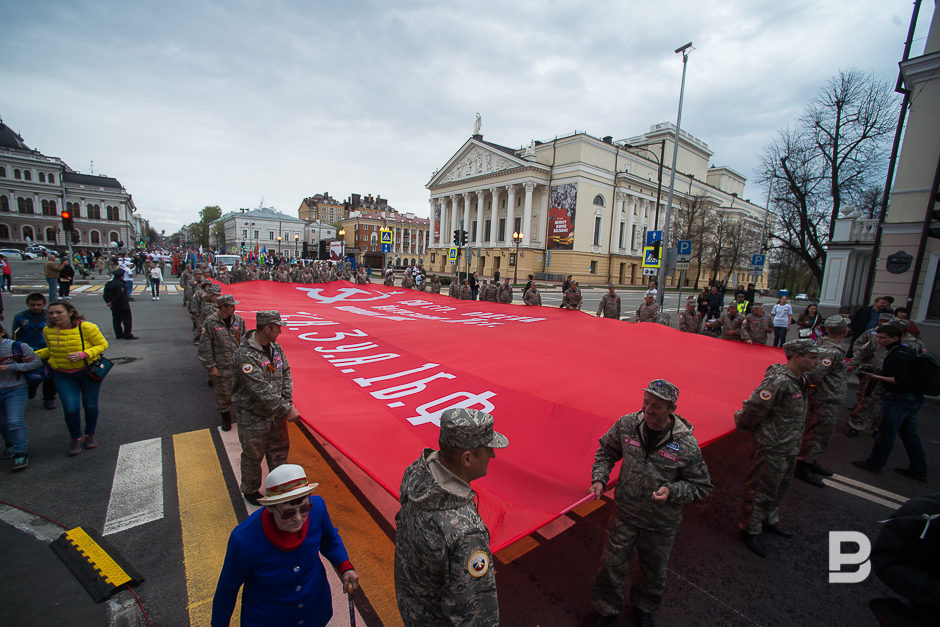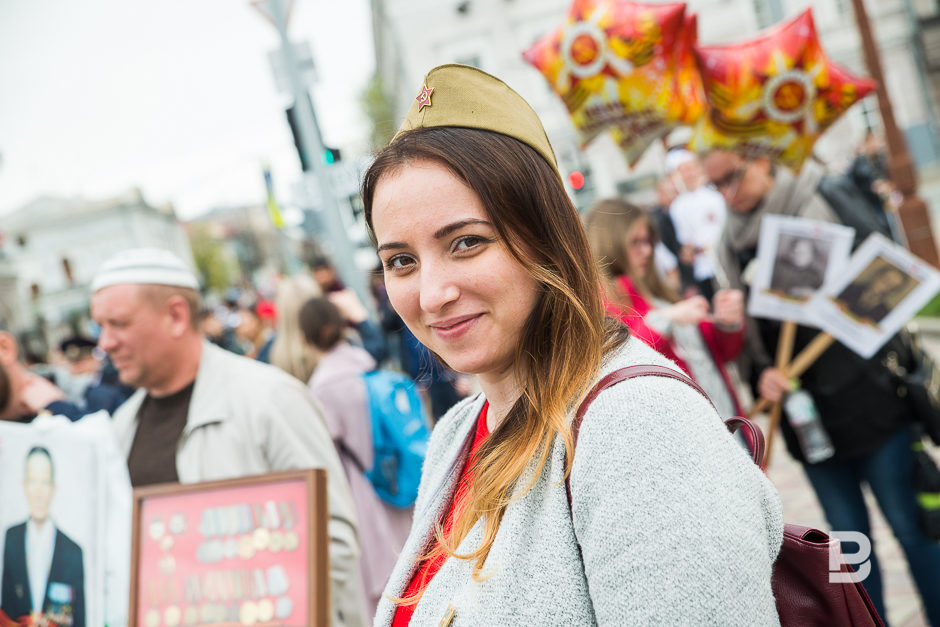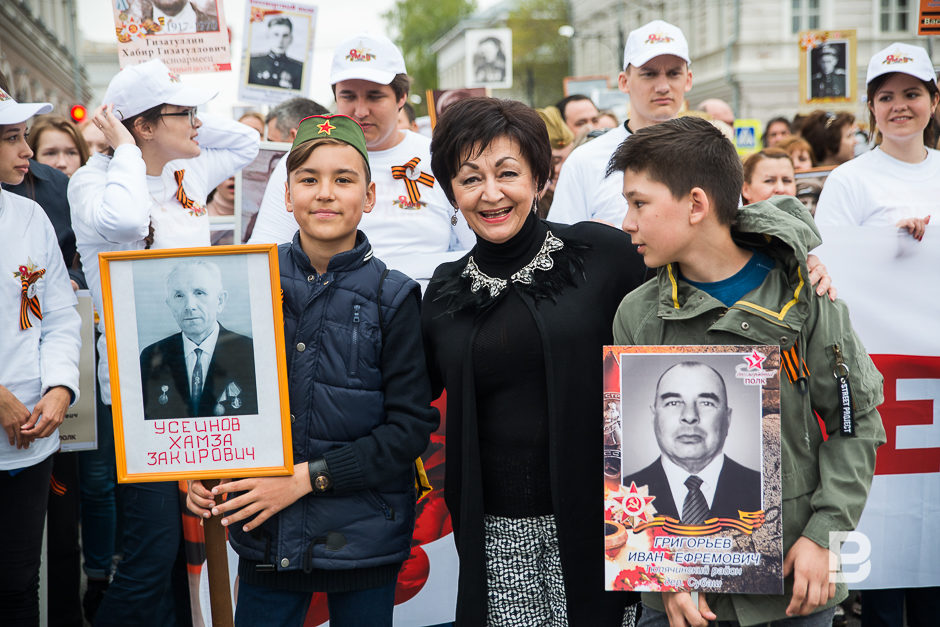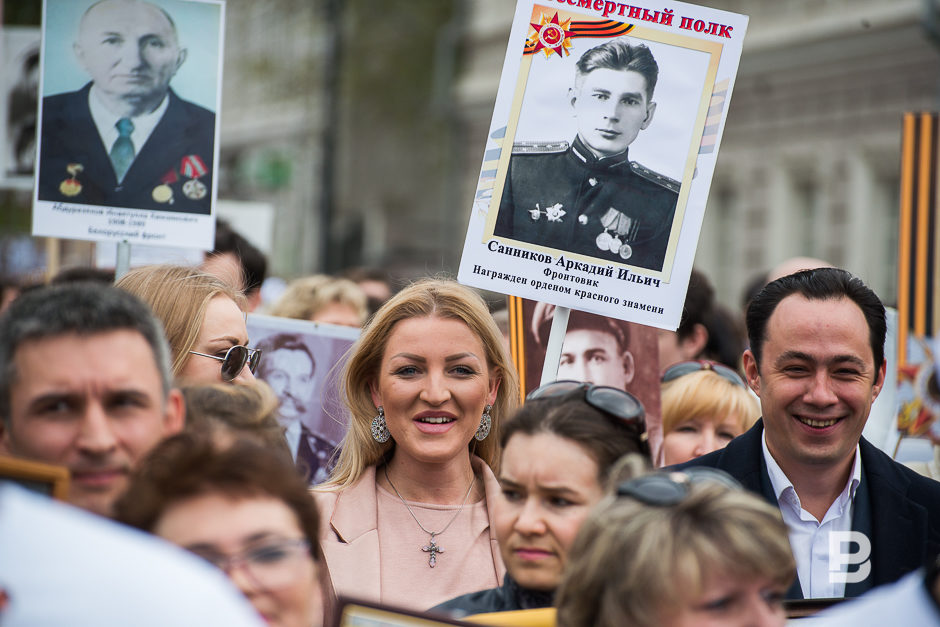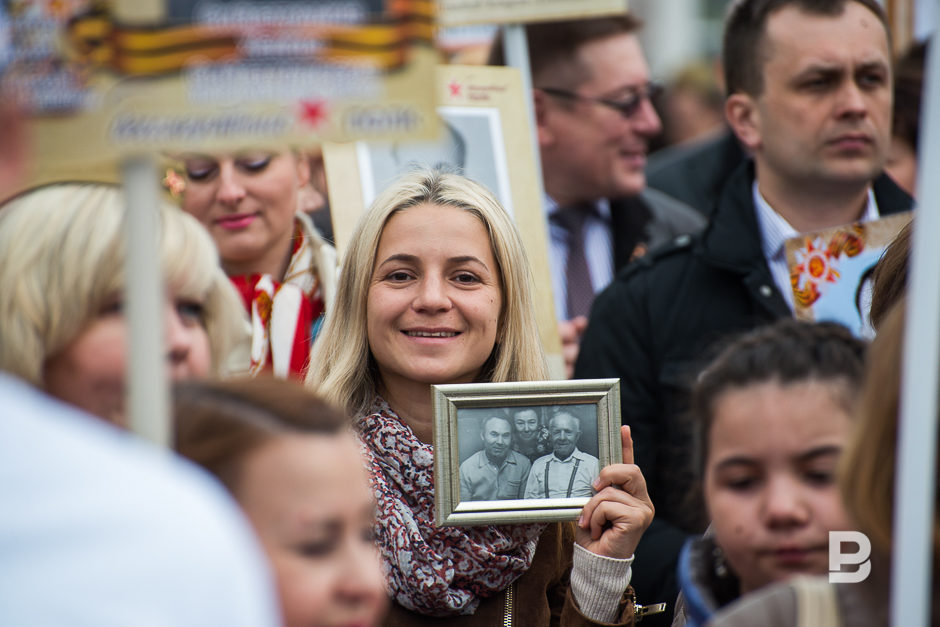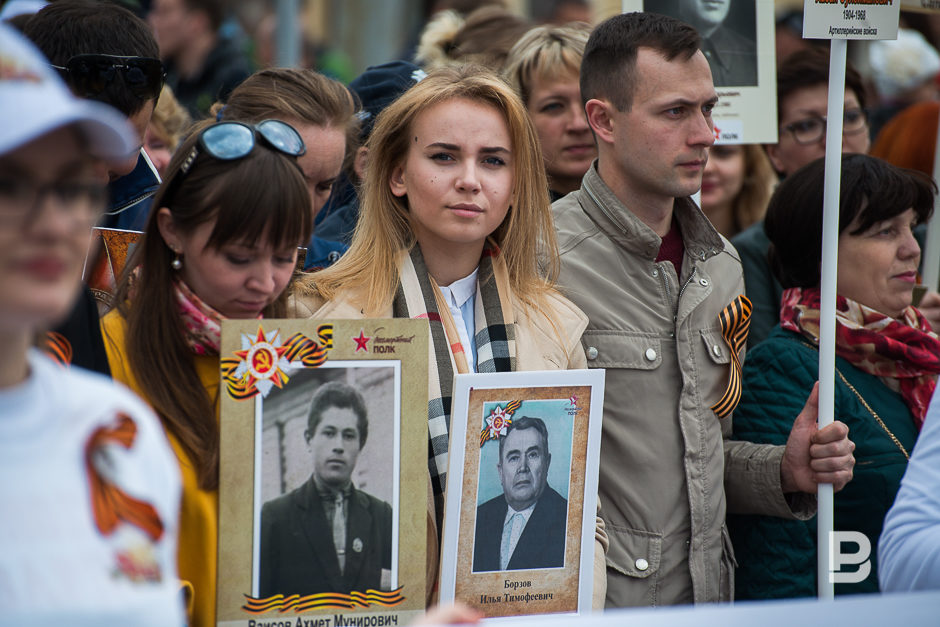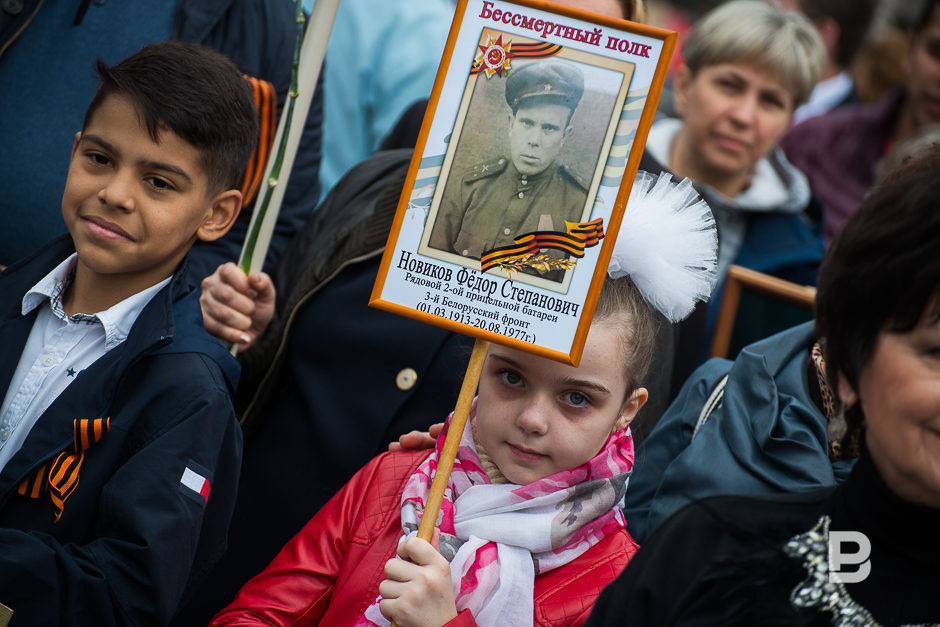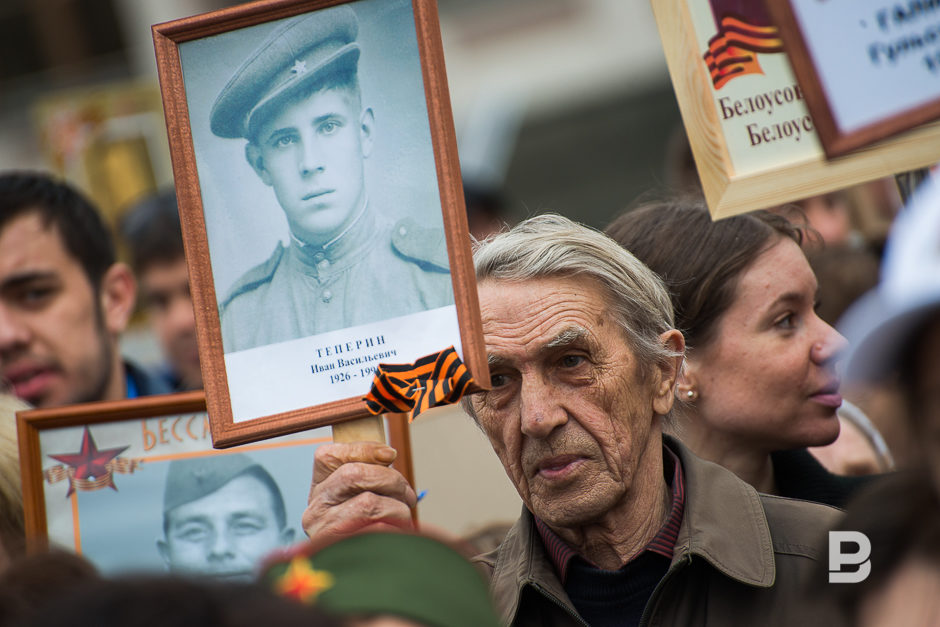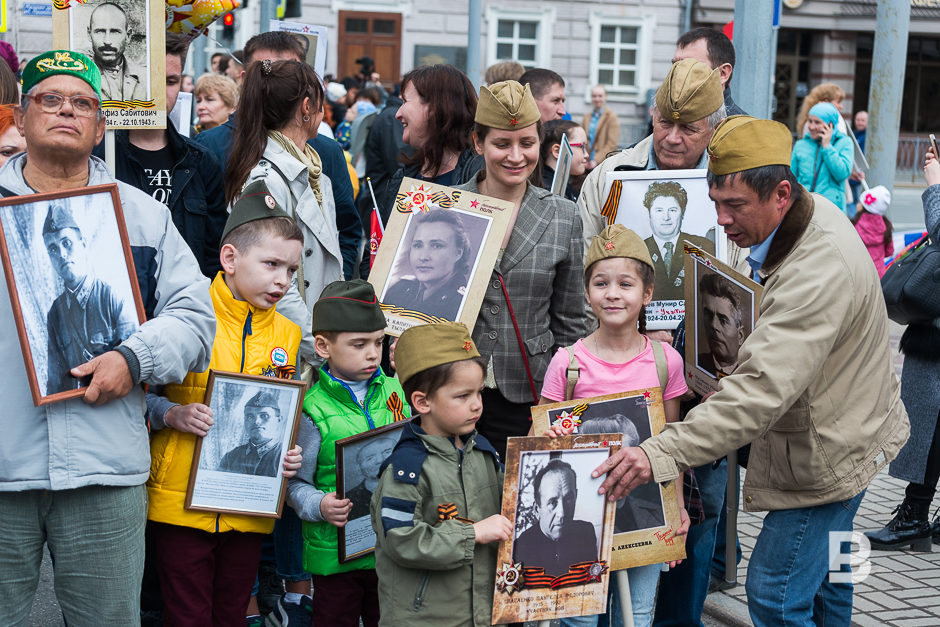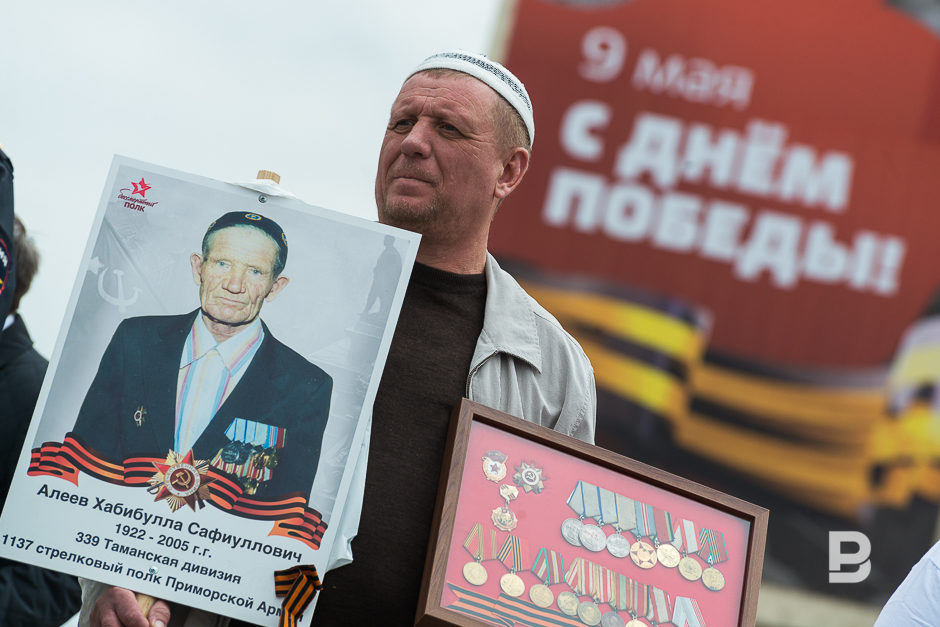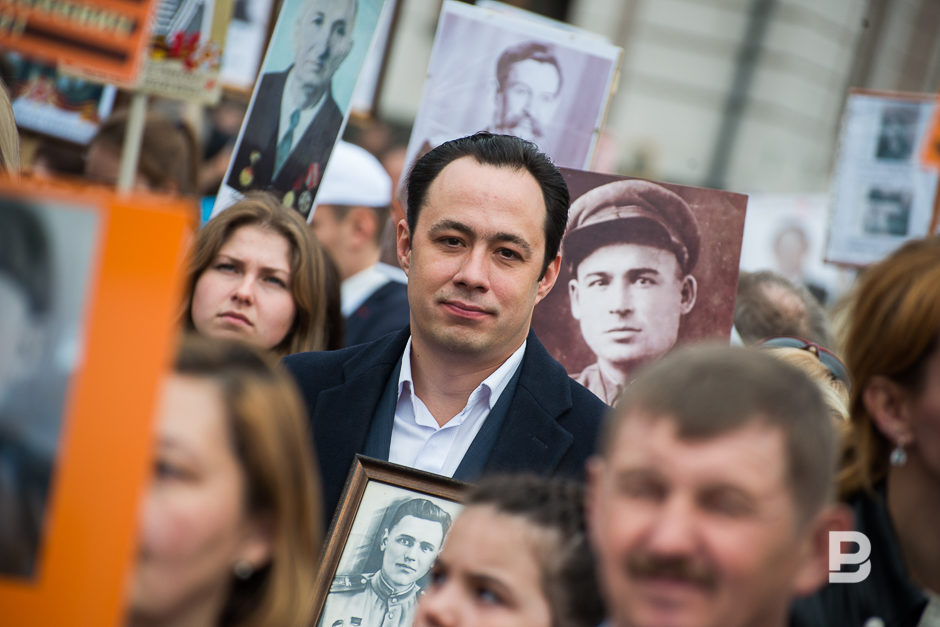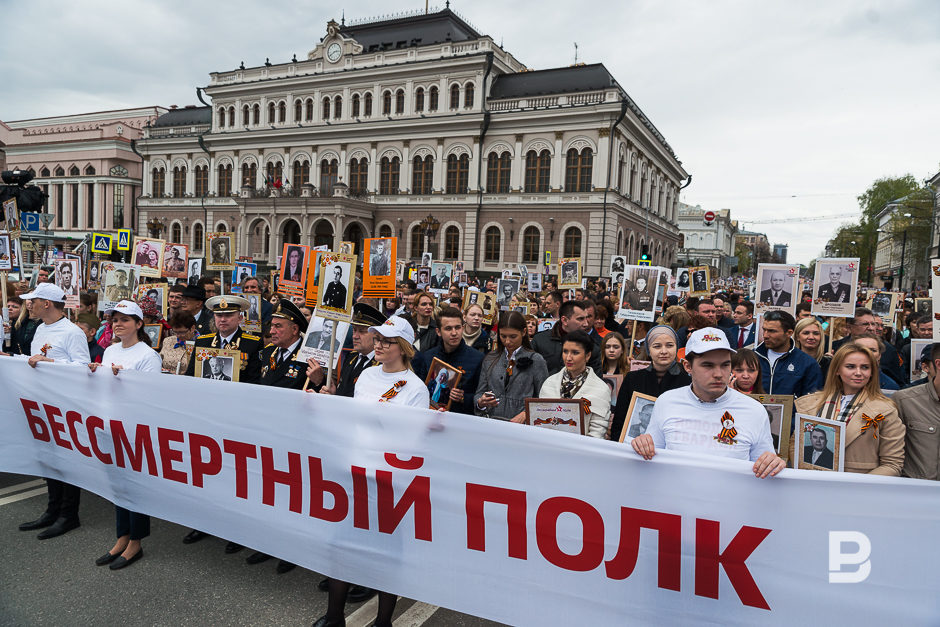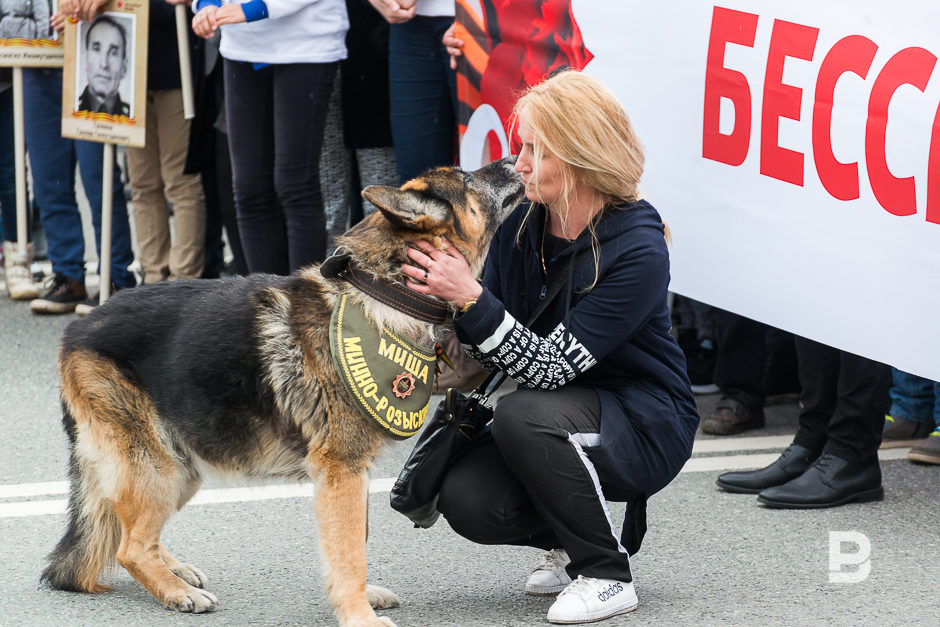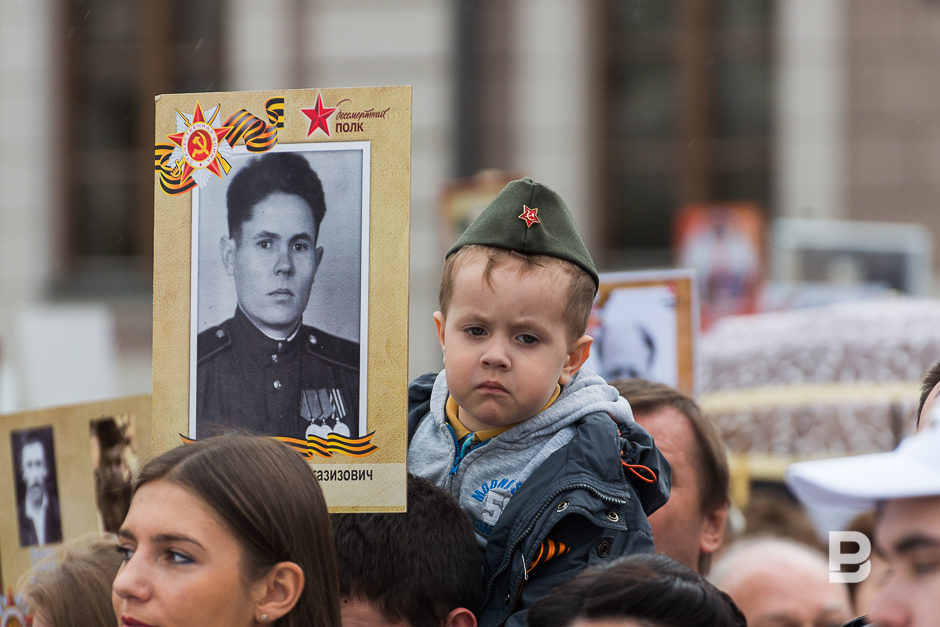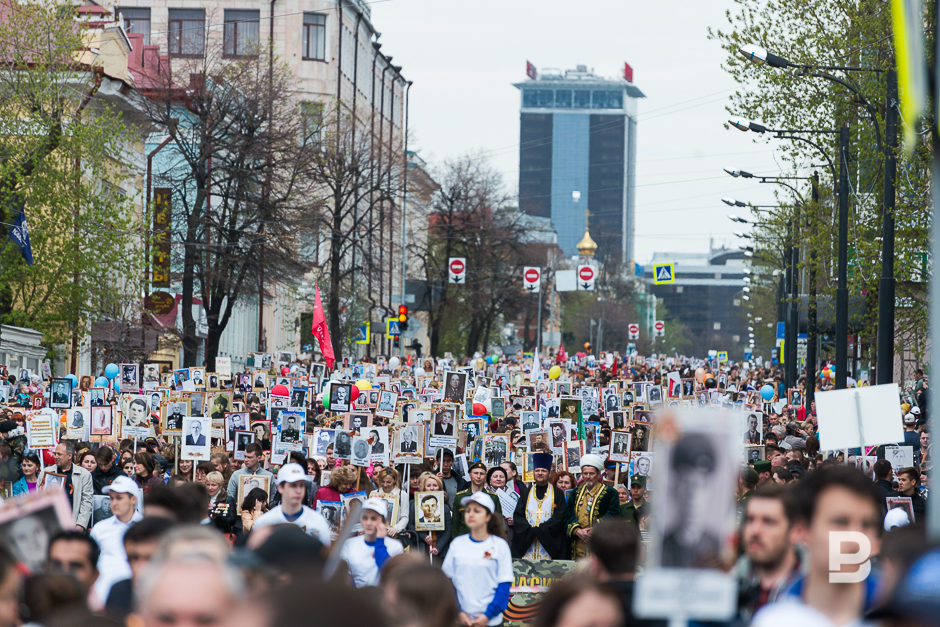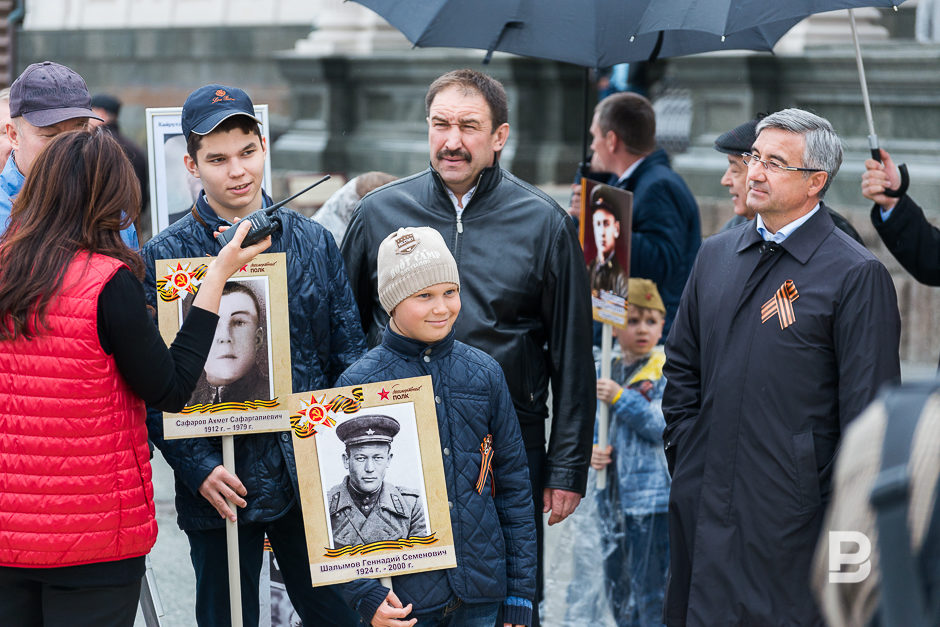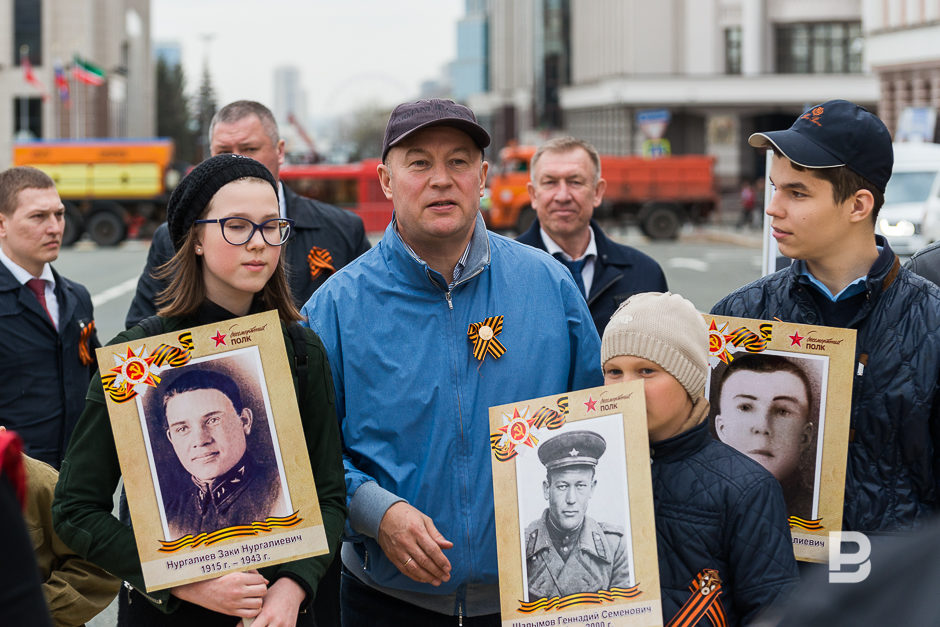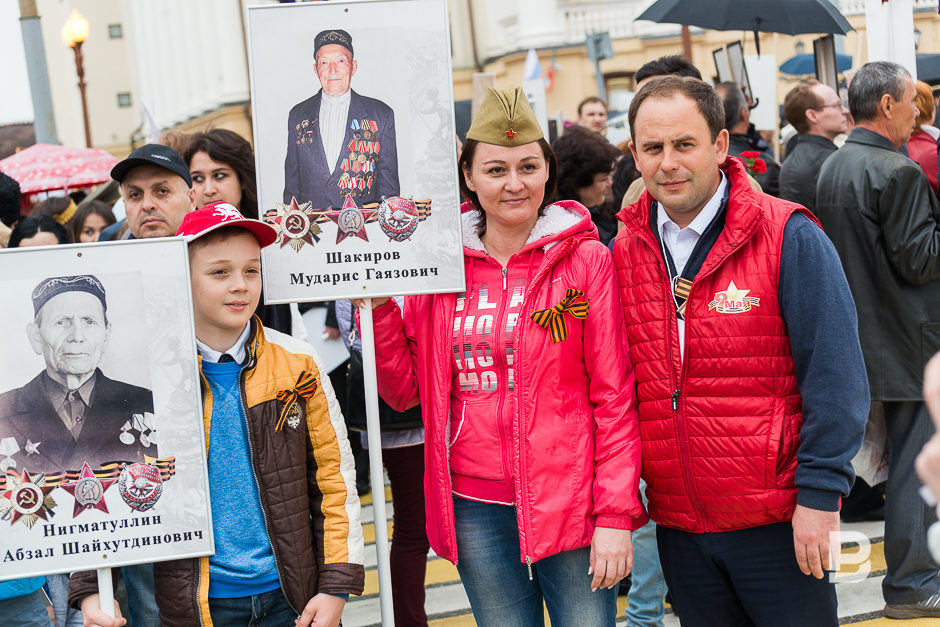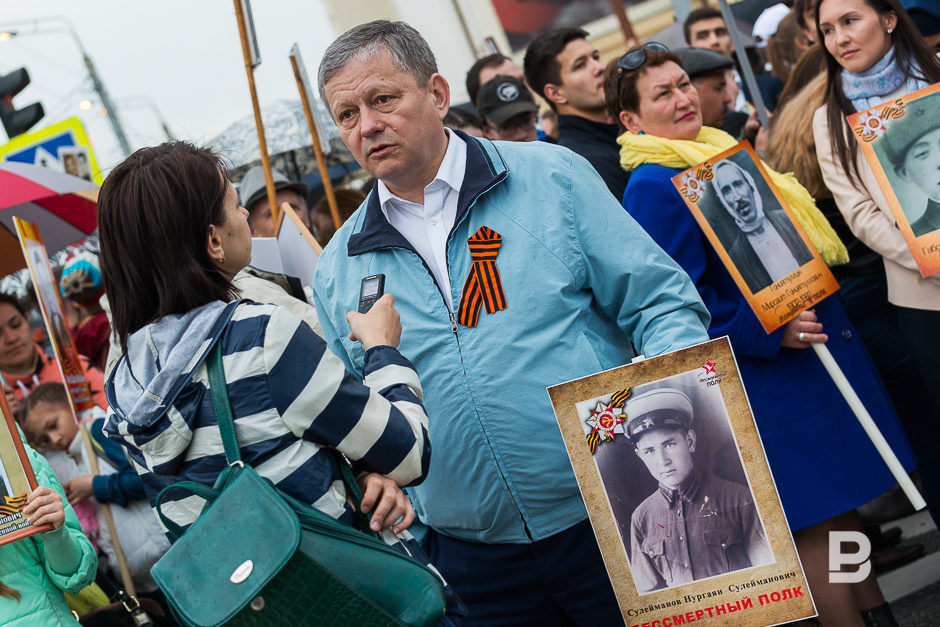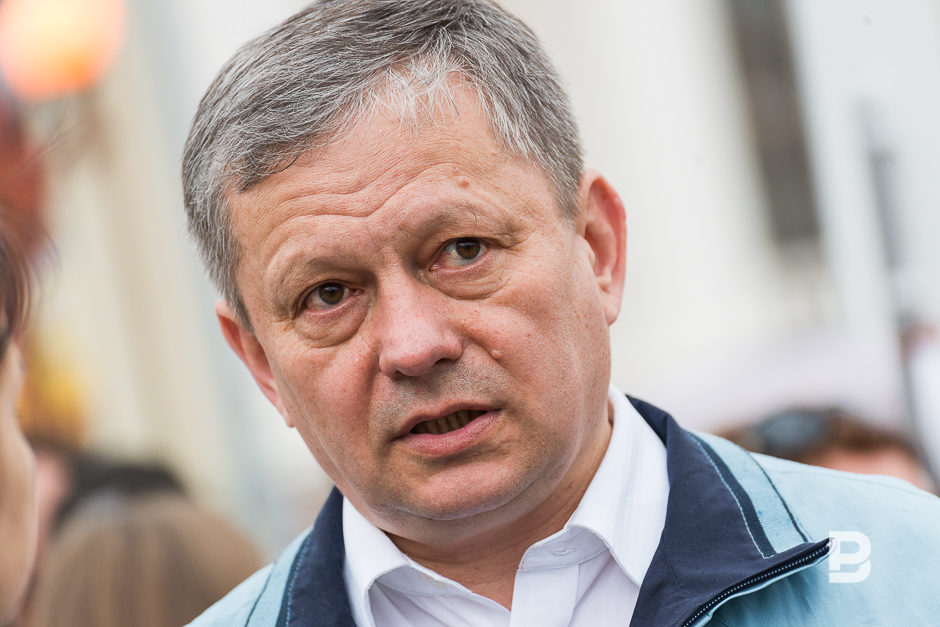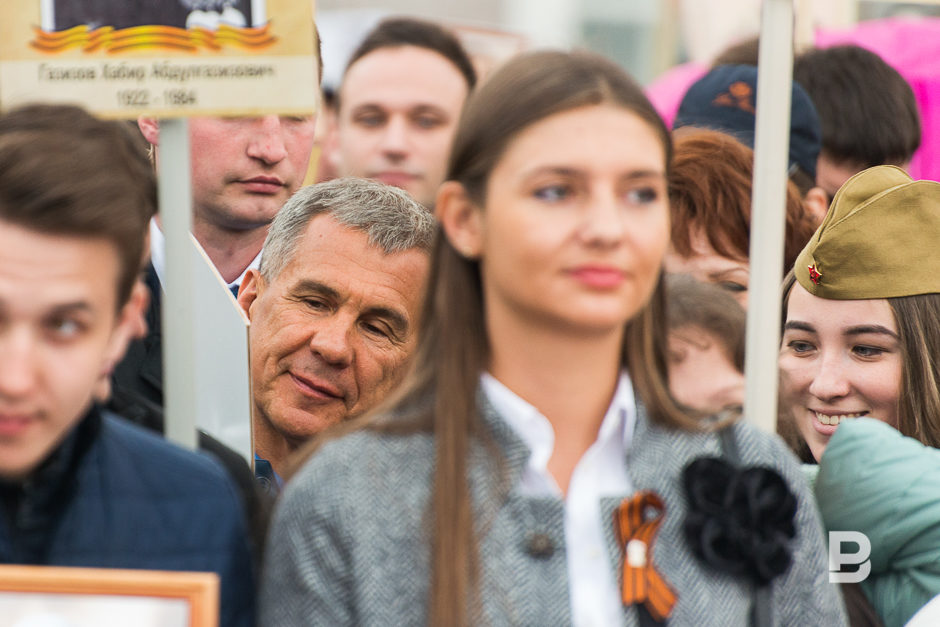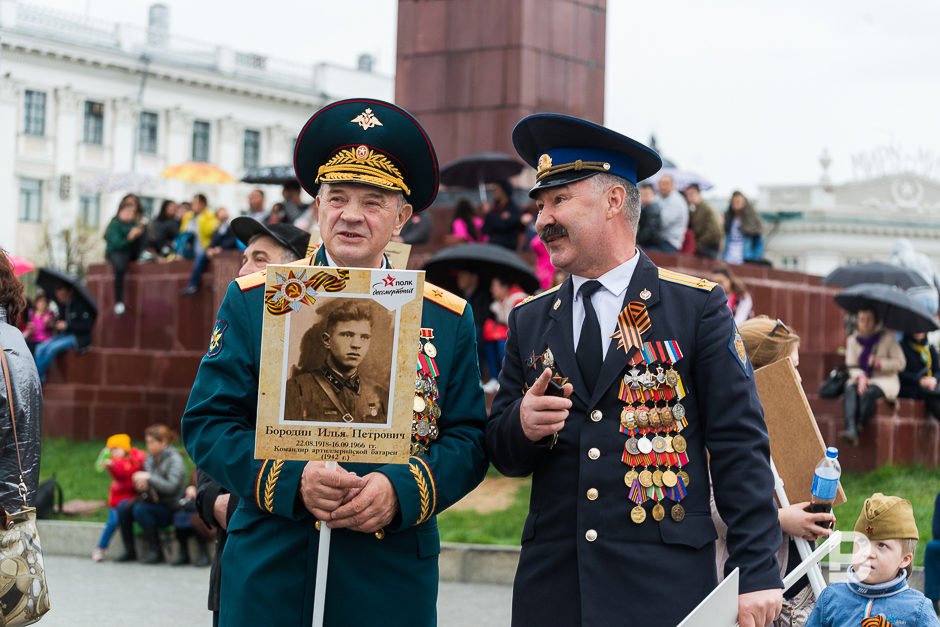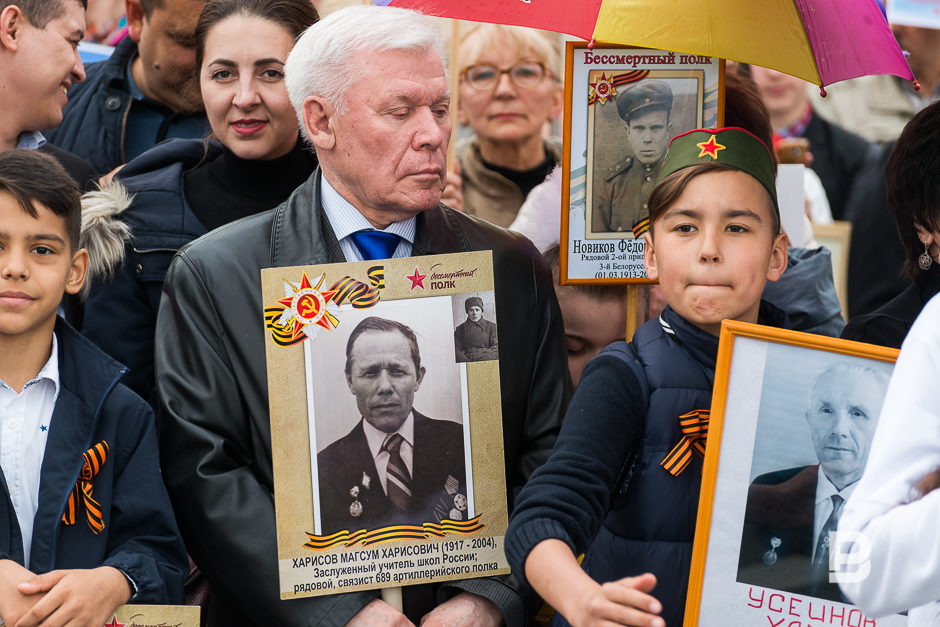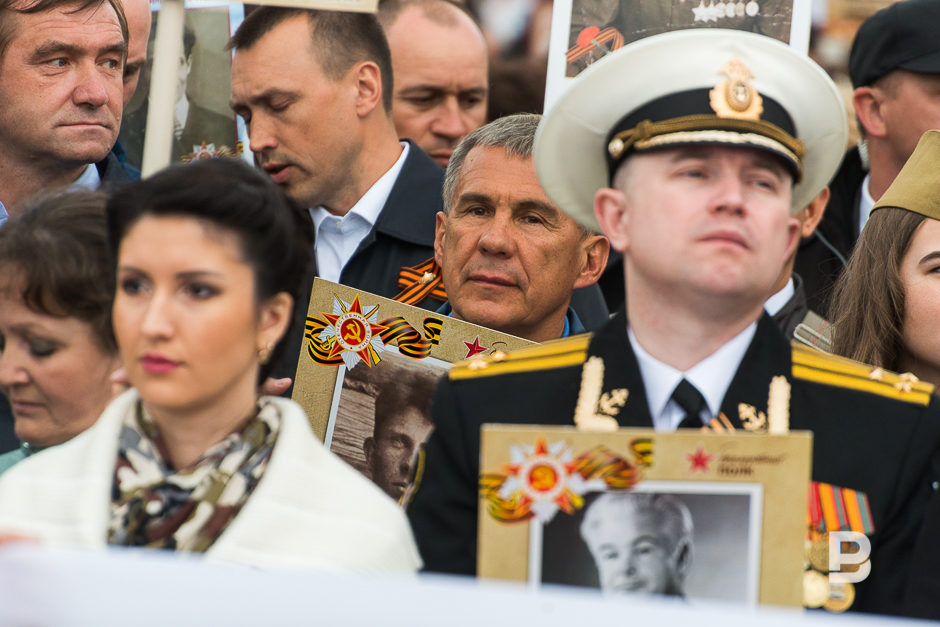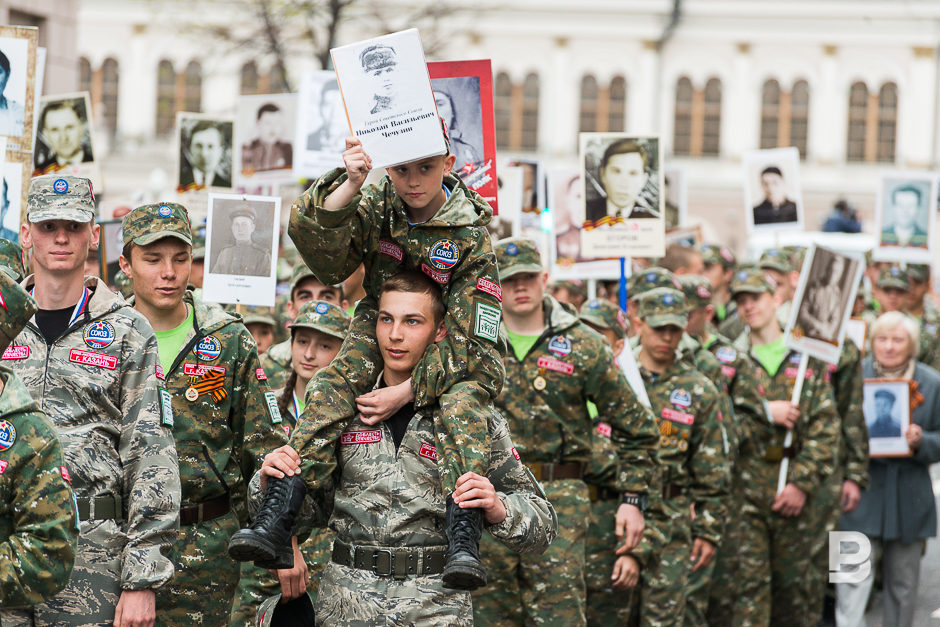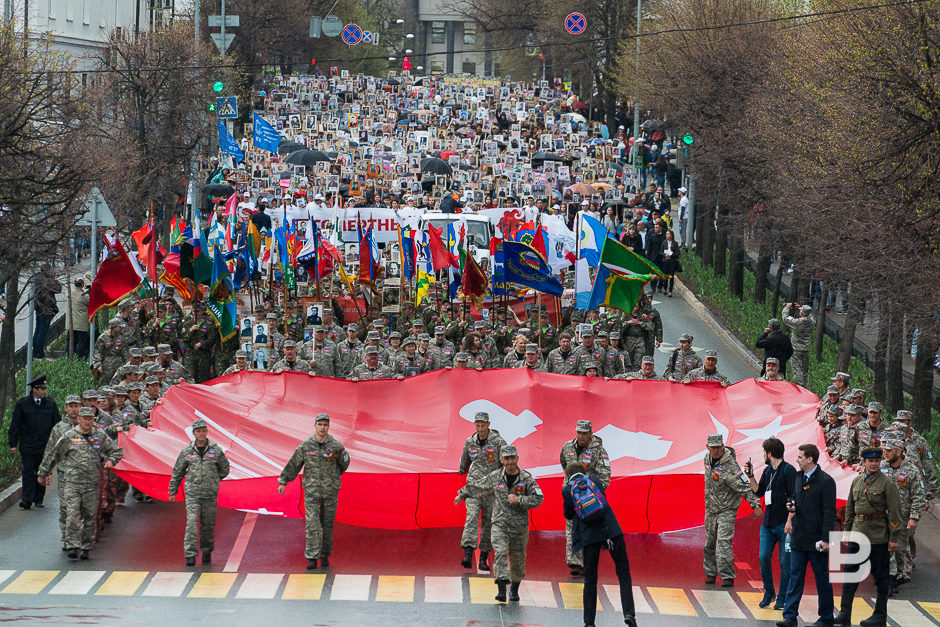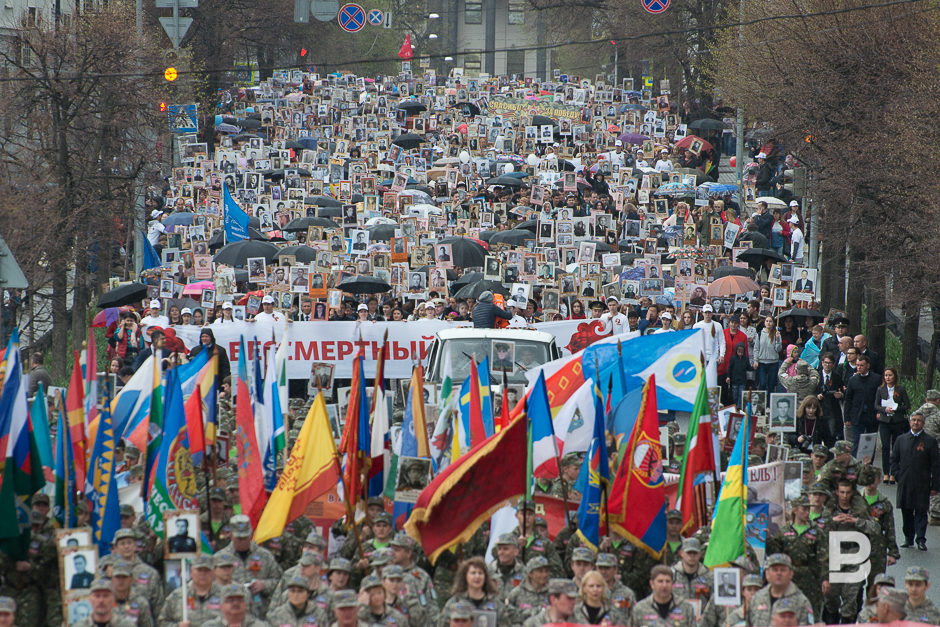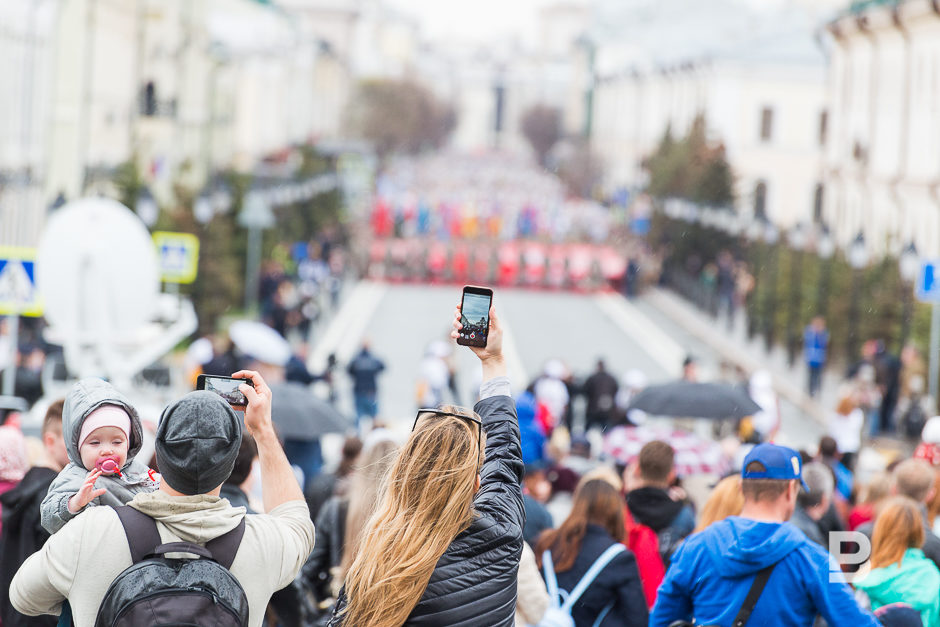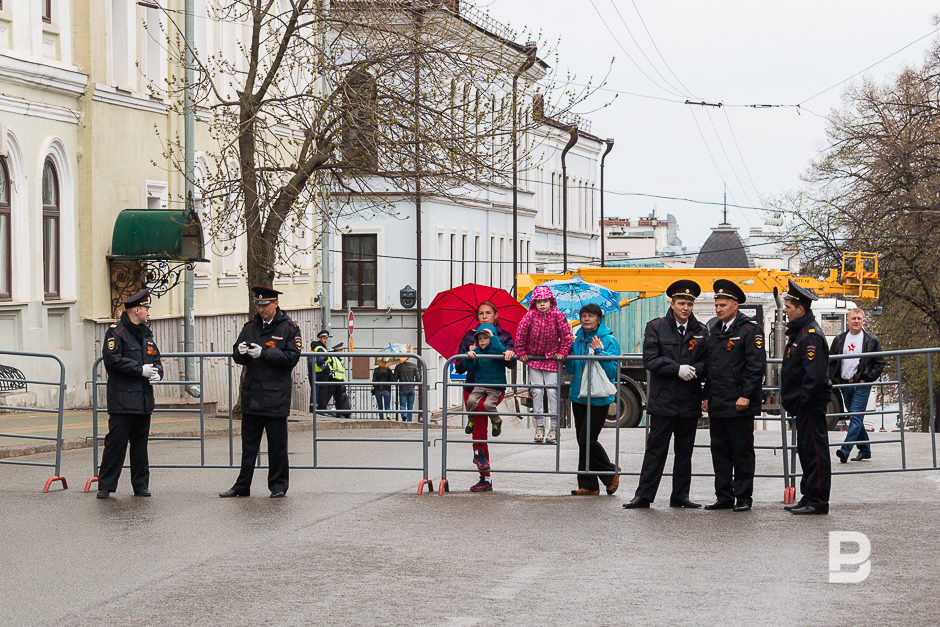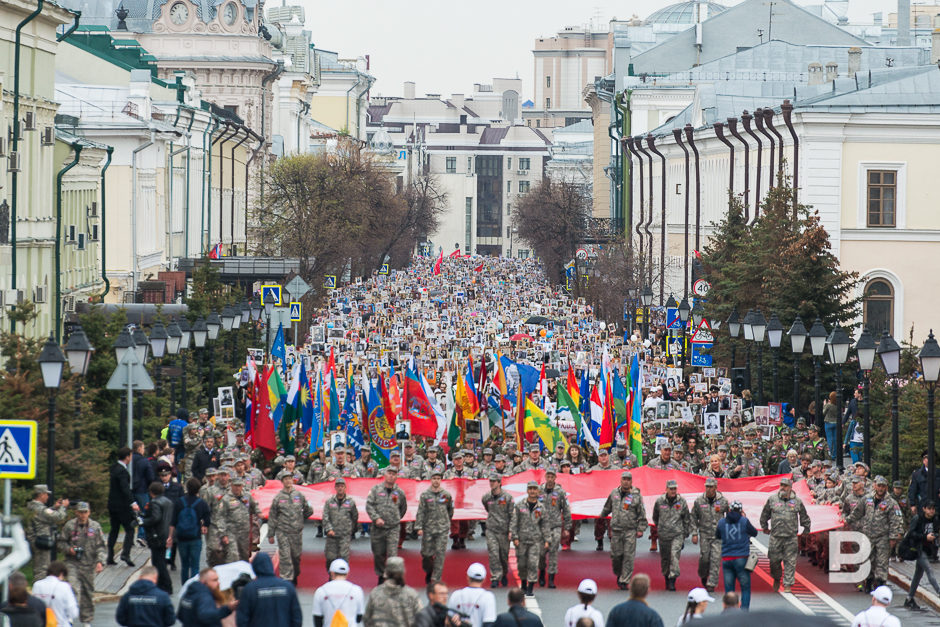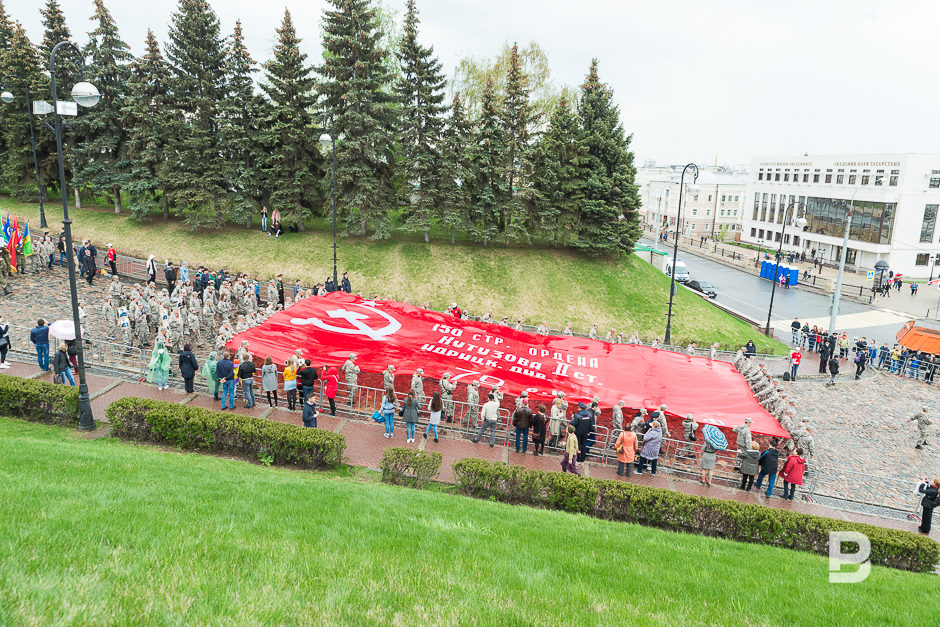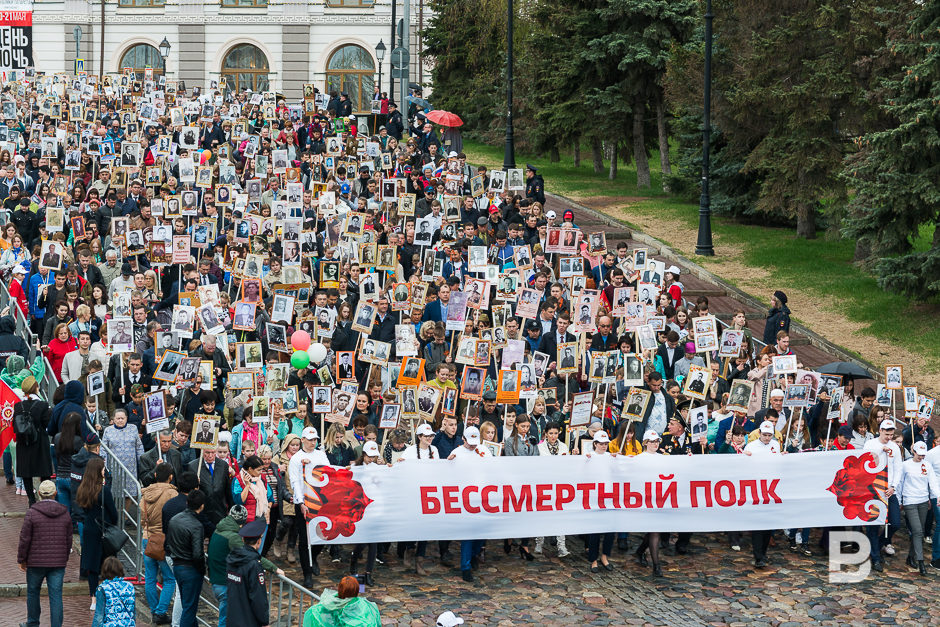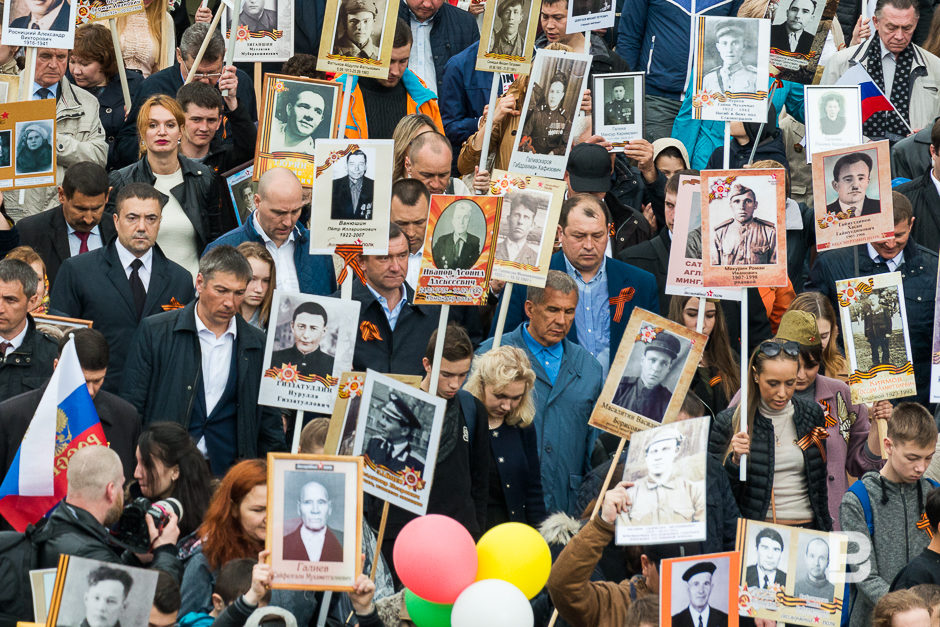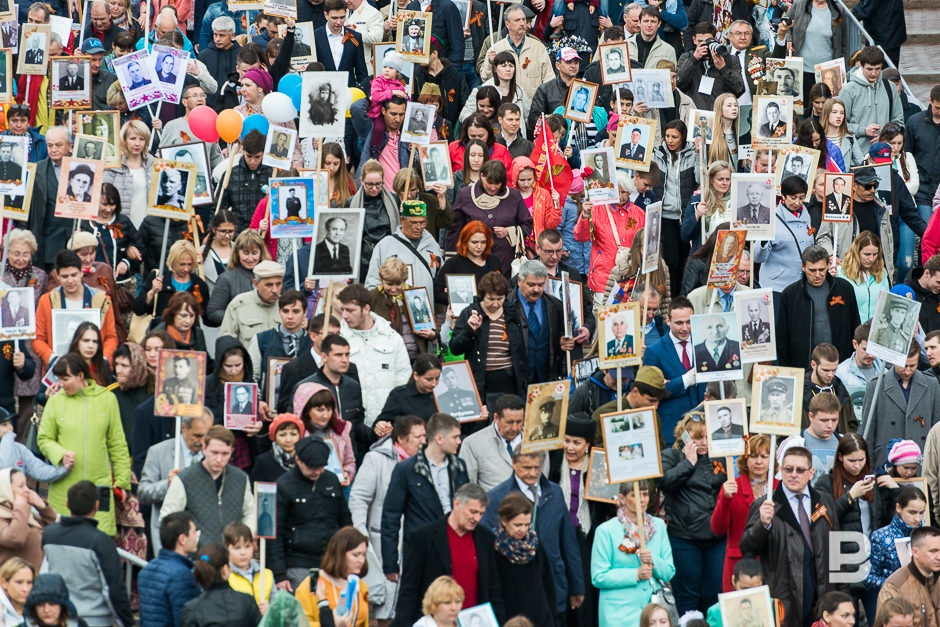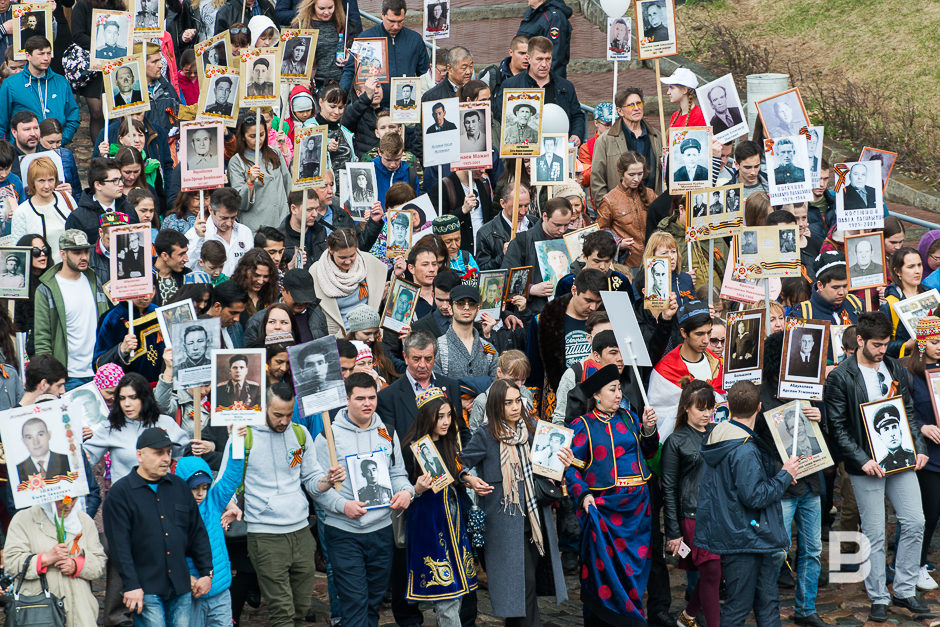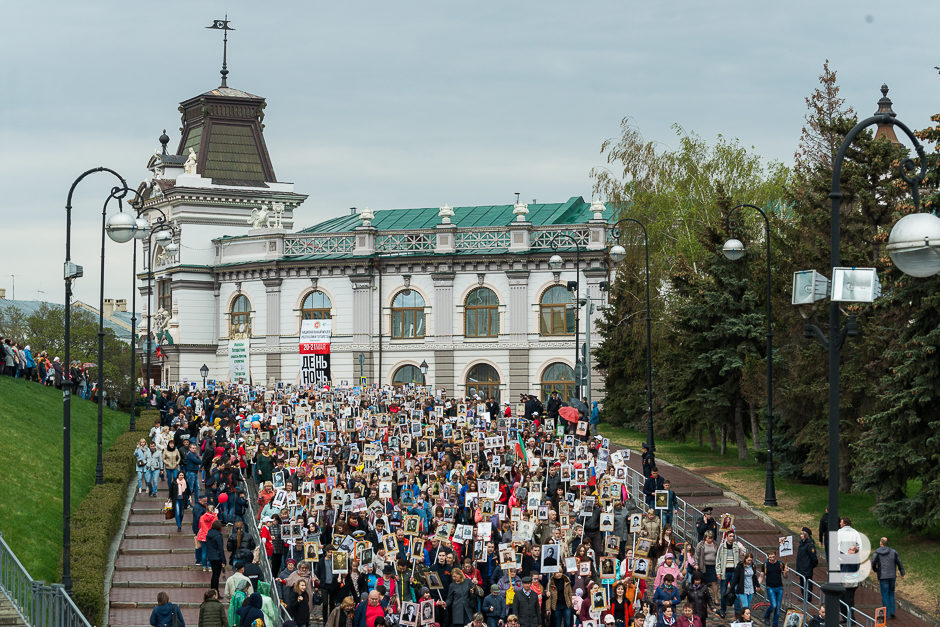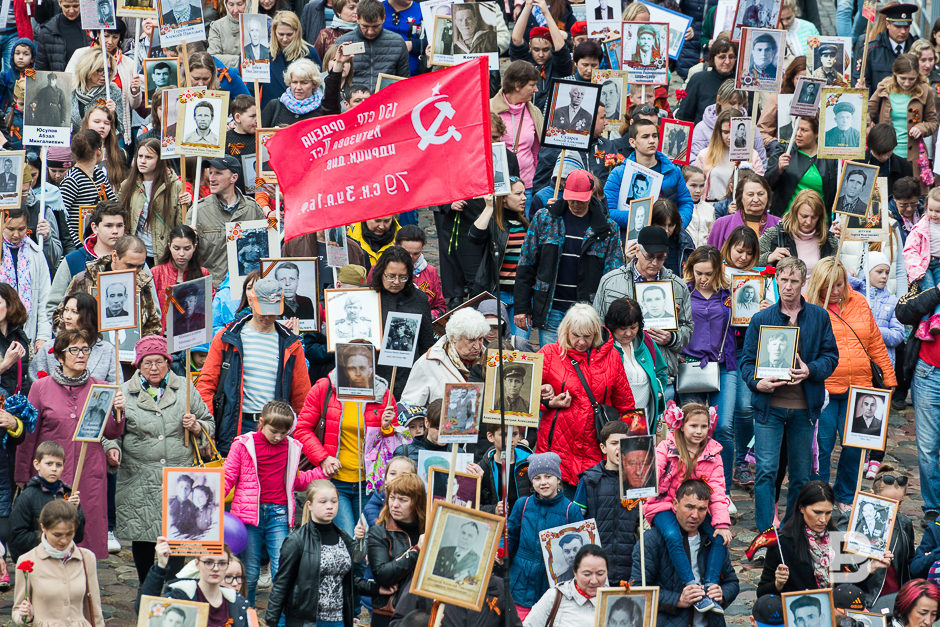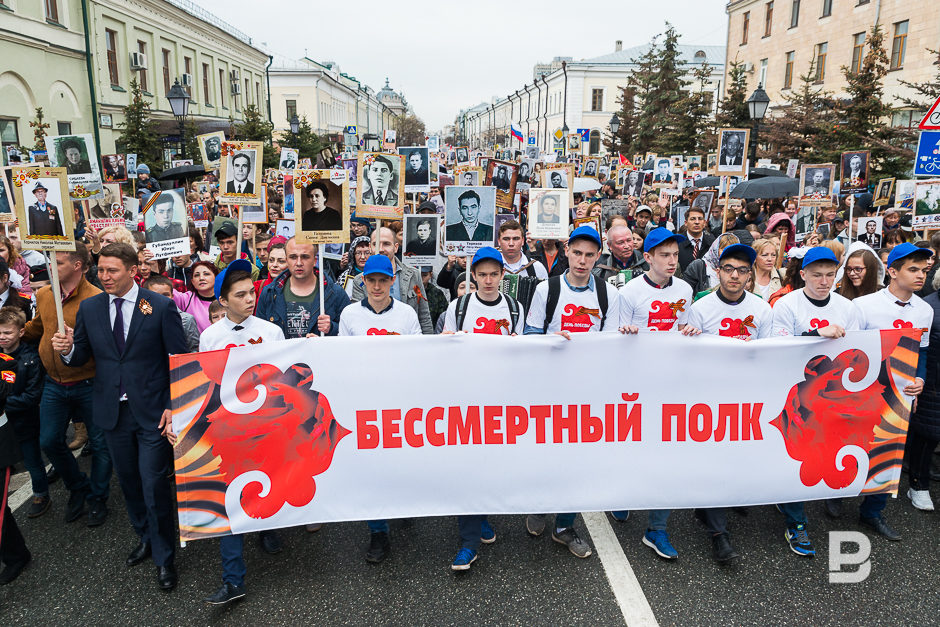Immortal Regiment in Kazan: whose portraits ordinary Tatarstan citizens and ministers were carrying
The procession in the capital of Tatarstan gathered 120,000 people, they came with their families, including the heads of ministries and departments of the Republic
The patriotic action Immortal Regiment have gathered in Kazan about 120,000 people. It is almost three times more than last year, when to the streets of the city with portraits of their relatives who fought in the Great Patriotic War there came out about 45,000 citizens of Kazan. The action was attended by families, for example, all generations of the Zdunovs walked in the column of the Immortal Regiment, the minister of economy in addition to the portrait of his great-grandfather was taking a stroller with his child. State Duma Deputy from Tatarstan Marat Bariev also came with his family, including 80-year-old mother. Minister of social protection Elmira Zaripova was with her mom and sons-twins. Members of the VIP columns told the histories of their families to Realnoe Vremya.
Minnikhanov with uncle, Pesoshin with grandfather
The route of Immortal Regiment started at Freedom Square — it was the ''head'' of the column, the ''tail'' stretched for several kilometres and near the Agrarian University. Separately I would like to note the security measures that have been observed. There were established seven inspection points, only through passing them it was possible to stand in the column. The streets leading to the center of Kazan, which became pedestrian on Victory Day, were blocked by trucks in order to prevent tragedies when weapons in the hands of criminals were trucks aimed at crowd.
In order to avoid crowding, the entire column was divided into blocks, between which volunteers all over the march maintained a distance of several tens of meters. The participants were handed out free bottles of drinking water, but few needed it. It was not hot, moreover, it was raining.
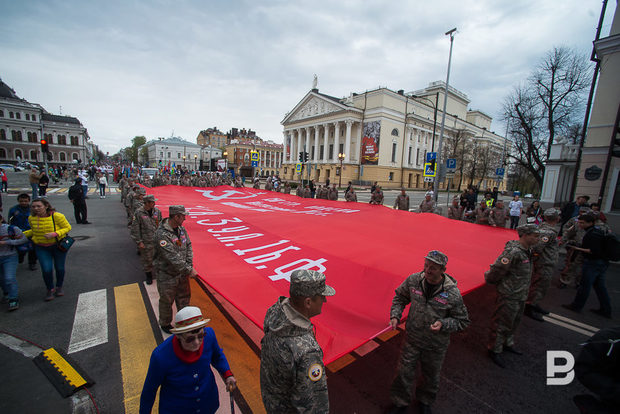
The head of the column was carrying Red Banner of Victory. Then there were walking the block consisting of the heads of the Republican ministries and departments, including the president of Tatarstan. Unlike last year, Rustam Minnikhanov was not at the beginning of the block but in the middle and it was difficult to discern him amongst other people. As well as in 2016, he was holding the photo of his uncle on his father's side – Galimzyan Minnikhanov. At the age of 19, he went to the front, fought in the 359th infantry regiment. Died in Moscow on 15 December, 1941. Prime Minister Aleksey Pesoshin was carrying a large portrait of his grandfather Vladimir Yakovlev.
All generations of the Zdunovs: neighbours should be forced to hold Immortal Regiment as well
Traditionally, the action Immortal Regiment is preceded by unpleasant moments, there is information that the turnout on the march was provided by attracting the administrative resource. Today's march has shown the opposite: it is hardly possible to force 120,000 people to gather. Whole families participated in the Immortal Regiment. For example, Minister of Economy Artyom Zdunov was with his family of eight people. Zdunov in one hand was holding a portrait of his great-grandfather, in the second one he was pushing a stroller with the sleeping baby.
''My great-grandfather, Ivan Papanov, went through the war from the beginning to the end, he died at the age of 89. He told me how he fought, how the field kitchen was delayed, how they were fishing, in a word, life continued during the war as well. My mother knows more,'' he said.
''My grandfather was a great grenade thrower, then a political instructor, he was in the war from the first to the last day, returned in September of 1945 — he was left in Berlin to train our soldiers. He conquered Konigsberg and Poland, he fought as part of the Third Ukrainian front,'' said the mother of Minister Zinaida Zdunova.
''Nikolay Kuzmich Zdunov is grandfather on my father's line. It is four of us — four heros,'' Zdunov shows another portrait, the resemblance to the grandfather is striking, he adds that he likes the campaign Immortal Regiment. ''It consolidates the society, shows our memory. It is necessary to carry out… And the neighbours also should hold it,'' after a pause he added.
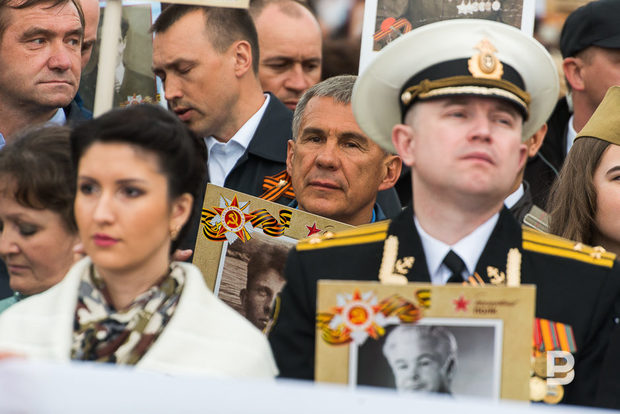
Deputy Bariev's dream is to find the grave of his uncle
Deputy from Tatarstan Marat Bariev also came with the whole family — six people, including 80-year-old mother. He was taking the portrait of his grandfather Nurgayan Suleymanov.
''The grandfather went through the whole war — Finnish, then the Great Patriotic war, he was seriously injured, after the hospital he was invalided out. My beloved grandfather. My dad died young, and my grandfather was to me father and grandfather, and everything. He also died a long time ago when I was at school. I will go to the march with my grandfather. My wife is holding the brother of my grandmother, who from the first day of the war went to the front, he was a scout and went missing near Leningrad in September of 1941. So far, we can't find his tracks where he was killed, his burial — does it exist? Grandmother all her life was telling about it, cried, remembered, but we failed… so I try to find out,'' tells Marat Bariev his family history.
Bariev was on the march in Moscow, he acknowledged that the event made a big impression on him.
''The unity of people regardless of age, nationality. It amazes me when people say that people are forced, that there are some quotas — I don't believe in this,'' says Deputy of the State Duma from Tatarstan.
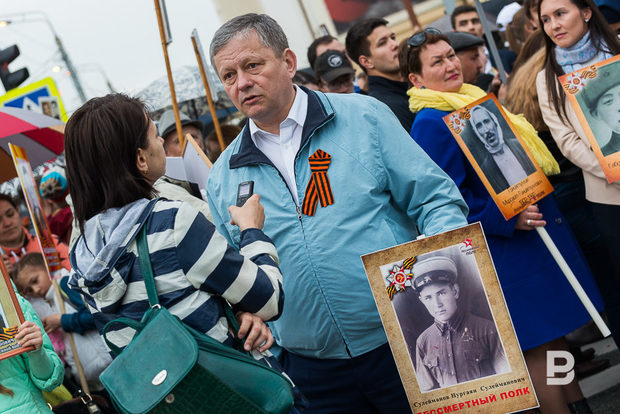
Gilmutdinov's grandfather and Akhmetov's father: soldiers and teachers
Bariev's colleague at the State Duma Irek Gilmutdinov was also with the portrait of his grandfather, Malik Khafizov. Gilmutdinov highlighted that he made the pillar by himself last year when he first ''walked'' with the grandfather in the column of Immortal Regiment.
''He was a teacher, a school director. He went to the war in 1944, he came back with TB… Many veterans returned ill. I now regret that then I did not ask grandpa about the war. And he didn't tell us — it was hard to remember, and we didn't feel the need to talk about it — I don't know… We were kids and played with medals, I remember in the village. Whose grandfathers were in the war — they took their medals, that time they had a lot of them and maybe they gave a little value to them… After the war, they had to restore the country and there was no time for memories,'' says Irek Gilmutdinov and also notes that he participated in the action with a pure heart.
''I came not because someone called or invited me. In the past year, I also voluntarily participated,'' says Gilmutdinov.
Beside him in the column there was Minister of Agriculture Mart Akhmetov with a portrait of his father.
''My father, Gotov Akhmetov. Twice Knight of the military order of the Red Star, he defended Leningrad, were on the Voronezh front, was twice wounded and after the war he served another year – so was the order in wartime. I am very proud of my dad — he's in different places worked as a teacher and director of the school, in the district committee of a department, a chairman of the kolkhoz. Last time he was the imam of our village of Khasanshaikh in Arsky district,'' told Marat Akhmetov to Realnoe Vremya about his father.
Military secrets of Elmira Zaripova
Almost in the forefront of the column there was Minister of Labour, Employment and Social Protection of Tatarstan Elmira Zaripova with his sons-twins. She was carrying a portrait of her grandfather on her mother's side of Karim Khalikov. The story of his feats took several minutes, but the most interesting thing is that Elmira Zaripova found out about this only three years ago. During his life her grandfather told nothing.
''He told nothing about the war — for him it was the most terrible event in his life, and he was always saying that we should preserve the peace. About his feats we found out only three years ago. There is the website Feat of people, by name I found all premium listings, and even learned about the details of his feats. He was drafted in 1940 to serve in the army, and the Soviet-Finnish war started, he participated in it. On 23 June 1941, he was drafted into the Great Patriotic War. He served on the Voronezh and First Ukrainian fronts, and he came back only in late 1945 as he was sent to Japan. From corporal he was promoted to commander of an engineering platoon, he participated in the storming of Berlin, the liberation of Czechoslovakia, he was awarded the Order of Glory of the third class, Order of the Red Star, Order of Glory of second degree and many other awards. He always went to Victory Park on 9 May, went to Leningrad and Moscow. They laid flowers to the monument of the Unknown Soldier — as long as health permitted, he went every year either at the Piskarevskoe cemetery in Leningrad or in Moscow,'' tells Elmira Zaripova.
P.S. The Immortal Regiment march finished on the Millennium square, where the celebration continued with a festival ''Singing Kazan''. Here it is necessary to note the organization again. As the area for public transport was closed down, people stretched out to the subway. To avoid a crush in the subway, the police let people down by parties, on duty there were several police who divide people on threads — to the tickets and the turnstiles. Police and metro worked smoothly and politely, the trains ran often, and in a short time the entire 120-thousand crowd went home.
